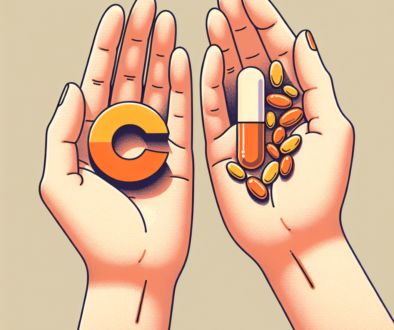Does astaxanthin affect heart rate?
-
Table of Contents
- Astaxanthin and Heart Rate: Exploring the Connection
- Understanding Astaxanthin
- The Antioxidant Effect on Heart Health
- Research on Astaxanthin and Heart Rate
- Case Studies and Anecdotal Evidence
- Considerations and Dosage
- Conclusion: The Verdict on Astaxanthin and Heart Rate
- Discover ETchem’s Protein Products
Astaxanthin and Heart Rate: Exploring the Connection
Heart health is a major concern for many individuals, and the search for natural supplements that can improve cardiovascular function is ongoing. Astaxanthin, a powerful antioxidant found in certain marine organisms, has been the subject of research for its potential health benefits, including its effects on heart rate. This article delves into the current scientific understanding of how astaxanthin may influence heart rate and overall cardiovascular health.
Understanding Astaxanthin
Astaxanthin is a carotenoid pigment that gives salmon, shrimp, krill, and other sea creatures their distinctive pink or red color. Unlike other antioxidants, astaxanthin has a unique molecular structure that allows it to span the cell membrane, providing protection to both the water-soluble and fat-soluble parts of cells. This characteristic is believed to contribute to its potent antioxidant capabilities, which are said to be much stronger than those of other antioxidants like vitamin E and beta-carotene.
The Antioxidant Effect on Heart Health
Oxidative stress is a known contributor to cardiovascular diseases. It can lead to inflammation, endothelial dysfunction, and increased heart rate, all of which are risk factors for conditions like hypertension and coronary artery disease. Antioxidants like astaxanthin are thought to mitigate these risks by neutralizing free radicals and reducing oxidative stress.
- Reduction of inflammation
- Improvement in endothelial function
- Potential lowering of blood pressure
- Decrease in oxidative stress
Research on Astaxanthin and Heart Rate
Several studies have investigated the effects of astaxanthin on heart rate and cardiovascular health. While research is ongoing, some findings suggest that astaxanthin may have a positive impact on heart rate modulation.
- A study published in the journal “Marine Drugs” found that astaxanthin reduced heart rate in spontaneously hypertensive rats, indicating potential benefits for blood pressure regulation.
- Another study in the “Journal of Clinical Biochemistry and Nutrition” showed that astaxanthin supplementation improved arterial stiffness, a factor that can influence heart rate and blood pressure.
- Research in “Bioscience, Biotechnology, and Biochemistry” reported that astaxanthin might help reduce the risk of cardiovascular disease by improving lipid profiles and antioxidant status.
While these studies are promising, more research is needed to fully understand the relationship between astaxanthin and heart rate in humans.
Case Studies and Anecdotal Evidence
In addition to scientific research, anecdotal evidence from individuals who have incorporated astaxanthin into their diets often report improvements in overall well-being and cardiovascular health. Some users claim to experience a more stable heart rate and increased endurance during physical activities, which they attribute to the supplement’s antioxidant properties.
Considerations and Dosage
When considering astaxanthin supplementation for heart rate control, it’s important to consult with a healthcare provider. The appropriate dosage can vary based on individual health needs and the form of astaxanthin being used. Most studies use doses ranging from 4 to 12 mg per day, which are generally considered safe for most individuals.
Conclusion: The Verdict on Astaxanthin and Heart Rate
In conclusion, while there is evidence to suggest that astaxanthin may have a beneficial effect on heart rate and cardiovascular health, more research is needed to establish definitive recommendations. The antioxidant properties of astaxanthin show promise in reducing oxidative stress and inflammation, which are known contributors to heart disease. As with any supplement, it’s crucial to discuss its use with a healthcare professional, especially for those with pre-existing health conditions or those taking medication.
Discover ETchem’s Protein Products
If you’re looking to support your heart health with quality supplements, consider exploring ETchem’s range of protein products. Their high-quality collagens, including marine, fish, bovine, and chicken collagens, are perfect for those seeking to enhance their dietary protein intake. These products are characterized by their neutral taste and instant solubility, making them an excellent addition to any health regimen.
About ETChem:
ETChem, a reputable Chinese Collagen factory manufacturer and supplier, is renowned for producing, stocking, exporting, and delivering the highest quality collagens. They include marine collagen, fish collagen, bovine collagen, chicken collagen, type I collagen, type II collagen and type III collagen etc. Their offerings, characterized by a neutral taste, instant solubility attributes, cater to a diverse range of industries. They serve nutraceutical, pharmaceutical, cosmeceutical, veterinary, as well as food and beverage finished product distributors, traders, and manufacturers across Europe, USA, Canada, Australia, Thailand, Japan, Korea, Brazil, and Chile, among others.
ETChem specialization includes exporting and delivering tailor-made collagen powder and finished collagen nutritional supplements. Their extensive product range covers sectors like Food and Beverage, Sports Nutrition, Weight Management, Dietary Supplements, Health and Wellness Products, ensuring comprehensive solutions to meet all your protein needs.
As a trusted company by leading global food and beverage brands and Fortune 500 companies, ETChem reinforces China’s reputation in the global arena. For more information or to sample their products, please contact them and email karen(at)et-chem.com today.


